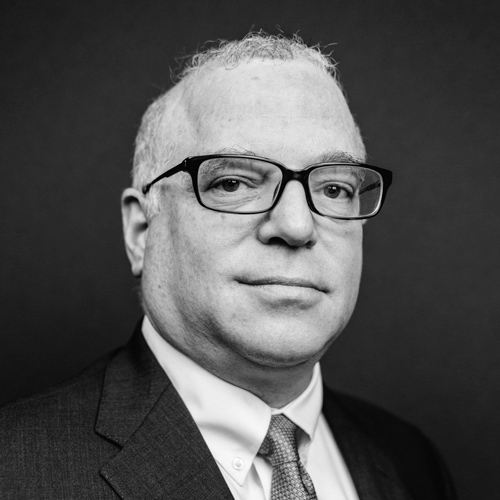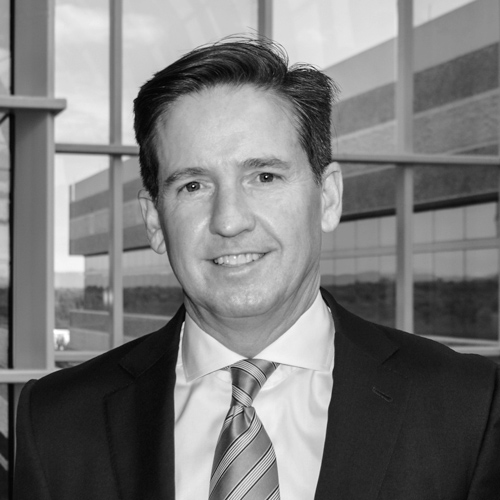Modern Counsel: You stepped in as interim vice president of human resources during a transitional time for Papa John’s. What was going on at the company at the time?
Caroline Oyler: I took the role at the end of 2008. Our CEO had just left, and our founder John Schnatter, “Papa John,” had come back as the new CEO. We were happy about that, but there were a lot of changes as a result. Our general counsel and head of HR had abruptly left, and there were some holes to fill. In the months that followed, we had some executive departures, and some executive hires. And, towards the end of my tenure, I had to make some changes to the HR team.
Best Practices
Oyler led the Papa John’s HR team for nine months as the company endured an array of leadership staffing changes. Here are her five tips for successfully managing change in times of uncertainty.
1. Set clear direction and strategy.
2. Listen and be empathetic.
3. Communicate changes through regular interaction and reports.
4. Empower and support the team to help them feel secure.
5. Encourage buy-in and ownership of changes by modeling positive behavior.
MC: With no previous HR experience, how did you deal with those changes, as well as the challenges of leading a new team?
CO: It would have been a stretch assignment under ordinary conditions, but because it was a time of change the role was especially challenging. I have a labor and employment background, and was originally hired in the HR department—but as a lawyer. I had already forged relationships with some of my peers in HR. But leading an established team as an outsider is not easy. As a leader, you have to be as clear as you can in setting the direction and strategy of your team. To establish that direction in a leadership structure that someone else has created is challenging. I had to step in and try to gain credibility pretty quickly. With an abrupt change like that, you want to set the right tone and be very positive and reassuring if you need to be. You also have to be flexible and able to adapt and adjust—especially at a company like Papa John’s. We have an entrepreneurial spirit, and our culture is fast-paced and dynamic, so I had to be prepared to change course when required.
MC: Looking back, how has that experience influenced the way you lead the legal team today?
CO: More than anything, those nine months taught me how to listen to my team and how to make it clear that I valued their opinions. But it also taught me how to step up and lead. A leader has to be the ultimate decision maker; you have to carve your own path while considering the implications for the team. You have to make tough decisions, but you also have to have empathy. I think I do that today. From a management perspective, I learned how important it is to align with my peers on the executive leadership team, and to have the support of other functions. That is not something I had much experience with before, and I think it carried over to my current role. Overall, the HR position was a huge jump for me in terms of management experience, but I’m so glad I did it. I’ve never regretted that experience. I even considered pursuing the role permanently, but in the end, my heart was in legal.
MC: Are there major differences in how you manage the legal team versus how you led the HR team?
CO: I’m not sure you need different leadership traits to be successful in those two functions. In both departments, we try to integrate with our business units to drive the business; that’s our ultimate goal. Both are support functions, in a sense. So the philosophy and overarching principles are the same. The day-to-day functions are different—the legal team is smaller, and there are different opportunities—but I think a successful leader on any team exhibits many of the same traits.
MC: How would you classify your leadership style?
CO: In some ways, it’s very participatory. I try to get input from my team as much as I can, and try to reach a consensus when appropriate, especially with issues concerning our department as a whole. When you discuss things as a team, it results in ownership of the decisions. Overall, I set the strategy for the team, and I’m the ultimate decision maker. But I’ve got a lot of smart, talented people in my department, and I like to empower them as much as possible. It makes the team stronger, and better equipped for the future.
MC: Your legal team has a flat structure with little opportunity for advancement. How do you keep your team engaged?
CO: It’s challenging, but small things matter. I try to let them know how valued their work is through recognition. We also have regular conversations about whether or not they’re happy with what they’re doing, and if there is anything they want to change up, or if there are any new areas of the law they want to take on. There are always new developments and new things we have to take on as a company, so things stay interesting. Our international business has really grown in the past few years, for example. And with all of the recent activity with data breaches, most members have had to step up and learn that area. More than anything, we have fun, and we support each other. That’s important, and it breeds loyalty. There are many long-term Papa John’s employees on the legal team. There is so much historical knowledge and commitment and a passion for what we do here. I view that as a huge advantage.

